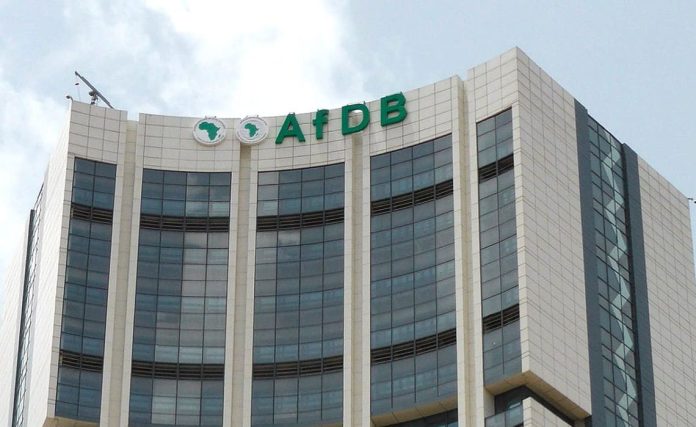- Cardoso wins African banker award
The African Development Bank has revealed that Nigeria’s Naira and the Ghanaian Cedi are among the African currencies that are expected to witness a decline this year driven by a potential fall in export earnings.
The Abidjan-based lender made this known in its 2025 economic outlook that 21 of the 54 African nations are likely to see their currencies fall in 2025 while 25 could see some gains as the global uncertainty leaves the financial markets volatile.
“Several countries—Egypt, Ethiopia, Ghana, Libya, Nigeria, Rwanda, Zambia, and Zimbabwe—are expected to experience currency depreciations of 6 percent or more.
“The depreciation in most of these countries will be driven by the potential decline in export earnings, which could put upward pressure on national currencies,” AfDB said in its report released on Wednesday.
On the flip side, some countries like Kenya, Morocco, and those in the CFA Franc zone could post appreciation in their currencies against the US dollars of more than 3 percent, the African-focused lender said.
The South African Rand and Kenyan Shillings have particularly been a top performer in the continent.
The Rand, which depreciated by 11.3 percent in nominal terms in 2023, pared those losses, appreciating by 0.7 percent year-on-year.
According to the report, the Kenyan Shillings appreciated by 3.1 percent in 2024 reversing its losses of 15.4 percent.
The shillings was bolstered by improved market sentiment following successful issuance of $1.5 billion in Eurobonds to buy back the $2 billion Eurobond maturing in June 2024 and leading to a 121 percent increase in portfolio investment inflows, reversing net outflows of $233.4 million recorded in June of the previous year.
For Africa’s top oil producer, slowing oil prices is a potential downside risk for its currency that has endured steep devaluation since President Bola Tinubu removed longstanding currency controls, allowing the naira to float.
The naira lost more than 40 percent of its value last year but began to budge after the central bank rolled out a wave of reforms to restore lost confidence and transparency in the operations of the market.
The Governor of the Central Bank of Nigeria, Yemi Cardoso, said this month that monetary orthodoxy is beginning to yield results, with FX market volatility dropping from 4 percent to under 0.5 percent, and reserves rising due to improved transparency and investor return.
The naira is also gaining, hovering between N1, 588 and N1, 611 per dollar this month, despite the global uncertainty that has left emerging markets currencies reeling from sweeping tariffs triggered by President Donald Trump.
“While exchange rate pressures have been largely driven by global factors, domestic challenges—such as misaligned foreign exchange regimes, fiscal deficit monetization, political instability, and low productivity— have also played a significant role,” AfDB said, adding that African nations must address these structural issues to further strengthen domestic macroeconomic fundamentals.
Cardoso wins African banker award
Meanwhile, the Governor of the Central Bank of Nigeria, Olayemi Cardoso, has been named Central Bank Governor of the Year at the 2025 African Banker Awards held in Abidjan, Côte d’Ivoire.
The award was presented at a gala on Wednesday and was conferred by African Banker magazine in recognition of what organisers described as Cardoso’s “bold and strategic” approach to monetary and regulatory reforms that have brought renewed confidence and stability to Nigeria’s financial system.
In a statement by the apex bank on Thursday, it was noted that the Awards Committee said the Central Bank under Cardoso’s leadership was recognised “for implementing key policy measures aimed at stabilising the naira, improving transparency in the foreign exchange market, and re-establishing policy credibility.”
“These efforts have laid the groundwork for long-term macroeconomic resilience and renewed investor confidence,” the statement added.
Accepting the award on behalf of the CBN governor was Nkiru Balonwu, Adviser to the Governor on Stakeholder Engagement and Strategic Communication.
She was joined on stage by the Director of the Bank’s Monetary Policy Department, Victor Oboh; the Director of the Banking Supervision Department, Olubukola Akinwumi; and a member of the Monetary Policy Committee, Aloysius Uche Ordu.
The organisers said, “The award reflects the Committee’s recognition of Governor Cardoso’s recent achievements and the Central Bank’s critical role in addressing market imbalances and repositioning the Nigerian economy for sustainable growth.”
Now in its 19th year, the African Banker Awards are organised by African Banker magazine in partnership with the African Development Bank Group, which serves as the official patron of the event.
The ceremony brings together senior government officials, commercial bankers, and development finance leaders from across the continent to celebrate excellence in African finance.

